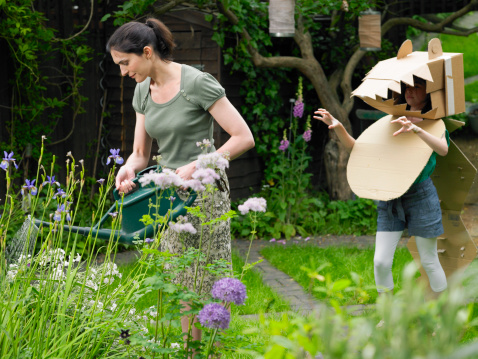Nothing was wasted: broken machinery was taken apart and the parts sold on; plastic bottles were collected and traded; even cow dung was piled by the side of the road to dry and be used as fire fuel. We are slowly wising up to the potential of recycling in the UK but could always do with some help to vision a more resourceful future.
Recycle Week, running from 16 to 22 June, is an annual event drawing together local authorities and some commercial businesses to raise the awareness and profile of recycling across the UK. Recycle Week is organised by WRAP, a company set up in 2000 with the vision of a world without waste. Working with businesses, communities and individuals, WRAP aims to help people reduce waste, develop sustainable products and use resources in a sustainable way. Now in its 10th year, Recycling Week 2014 is also drawing attention to the fact that we can recycle more materials and greater quantities than we could ten years ago. The UK recycling sector now generates more than £13 billion a year in sales, employs more than 40,000 people and contributes around £3 billion-worth of additional value each year to the UK economy. Highlighting the fact that recycling has come a long way in ten years, Recycle Week also reminds us that there’s plenty more to work on.
This year’s theme is Recycling At Home And Away so that means thinking about recycling not just when you’re at home but also at work and at places of leisure.
Here’s what you can do this Recycle Week:
1. Petition your local authority for improved recycling facilities – not just at the local depot but around the town, in schools, colleges and places of work
2. Spread the word by using the Recycle Week banner on your Facebook, Twitter and/or blog
3. Organise a trip to your local recycling depot – kids are far more likely to absorb the recycling message if they can see it in action
4. Get your child’s school on board by suggesting they take part in Recycle Week activities
5. Ask your place of work to provide recycling facilities for staff
6. Have a clear out of clothes, toys and books and donate them to your local charity shop
7. Get creative with waste and have fun making something out of discarded items. Check out these ideas from Susan Campbell’s Pinterest board for creative kids’ crafts made with recycled materials.
8. Visit The Rubbish Collection exhibition at the Science Museum http://www.sciencemuseum.org.uk/rubbishcollection. Discover the beauty, value and volume of ‘rubbish’ produced by the Museum over 30 days in their unique two-part exhibition. Artist Joshua Sofaer invites you to participate in collecting, sorting, photographing and documenting one month’s worth of rubbish produced by the Science Museum’s visitors, staff, contractors and exhibition projects, to help create a visual day-to-day archive of their rubbish. The exhibition will expose the materials, the volume and the intrigue surrounding what we think of as ‘rubbish’, before it continues its onward journey to be recycled.







